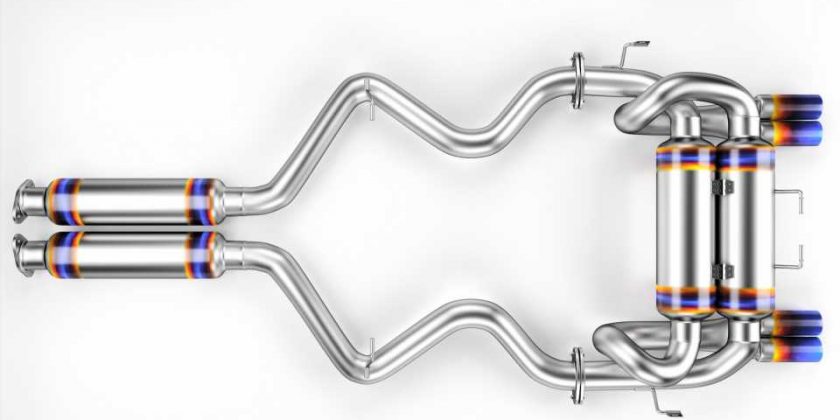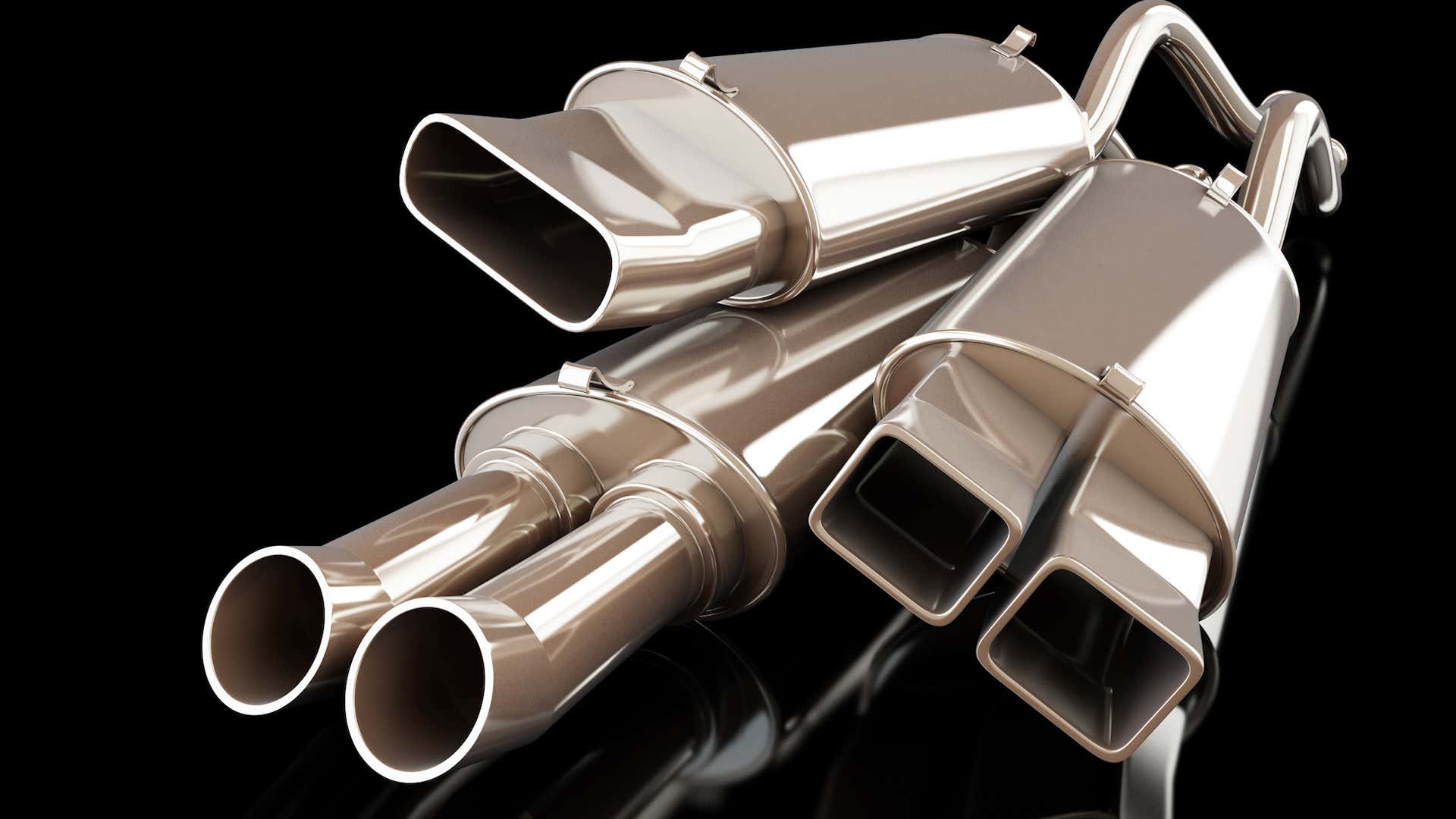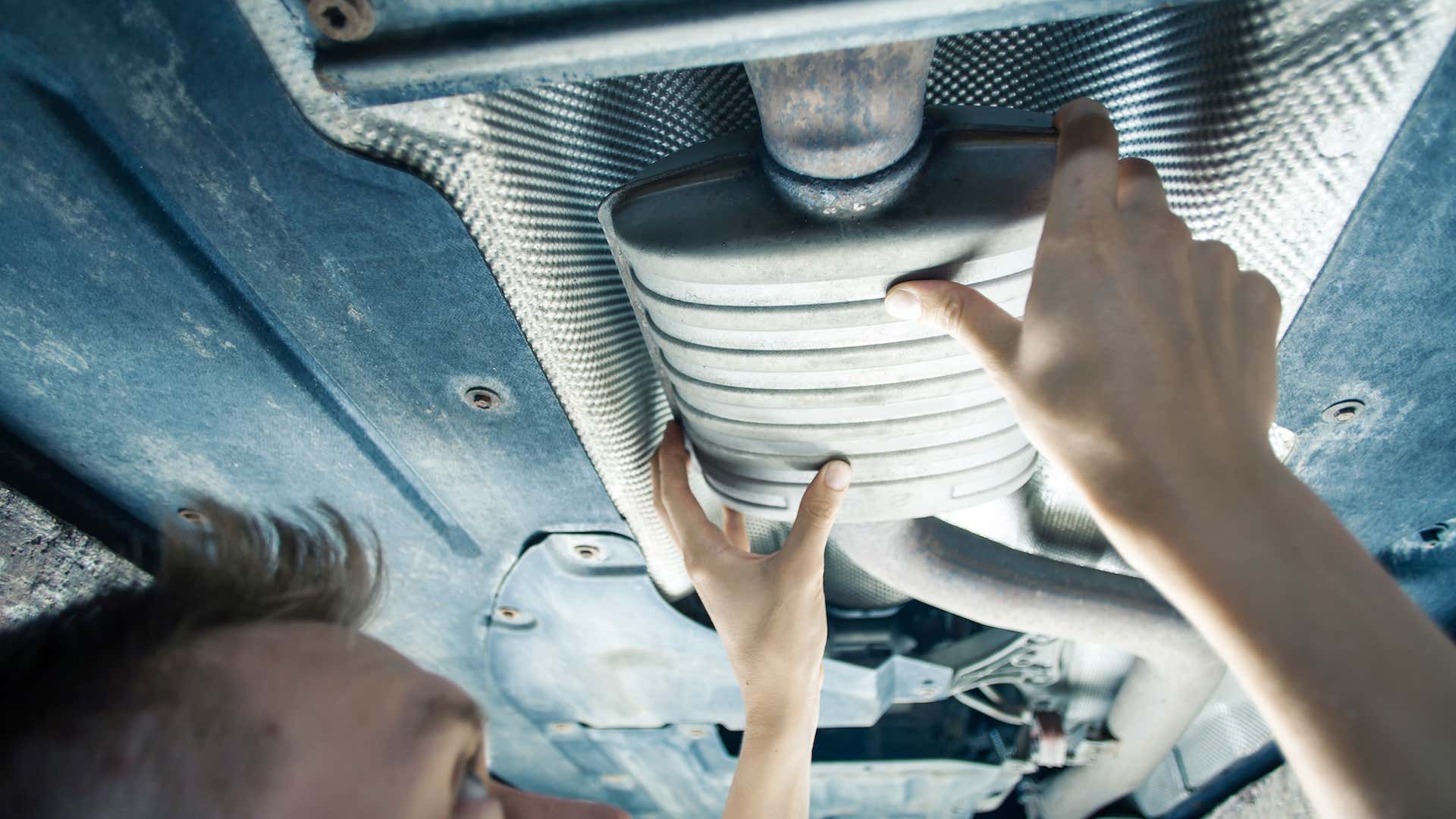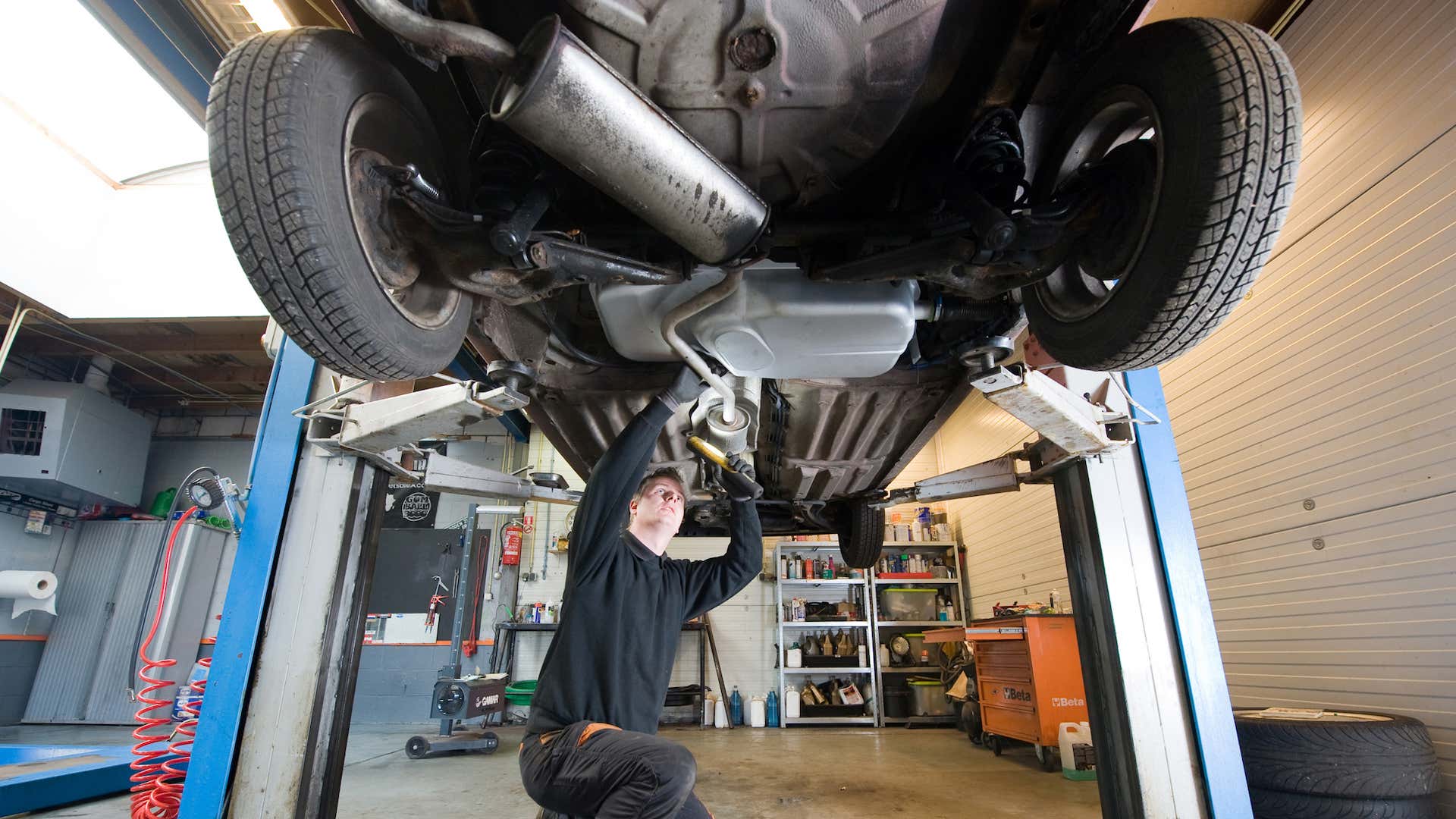You may think that your car’s exhaust is just a big pipe that leads from the engine to the back of the vehicle, but there’s a lot going on that you might not know about. Exhaust systems have grown to be quite elaborate as emissions tests and noise regulations have reshaped the industry.
Parts like catalytic converters came along to help reduce toxic gases and pollutants, and others, like resonators, were added to help control noise coming from vehicles’ exhaust systems.
A resonators’ sole purpose in life is to change a vehicle’s engine noise before it reaches the muffler for a final decibel reduction. But how is a resonator engineered? How is it different than a muffler? Why do you need one? These are the questions The Drive’s crack info team are here to answer. So, let’s get started.
Exhausts and resonators come in all shapes and sizes.
What Does A Resonator Do On A Car?
Your vehicle’s engine makes a lot of noise as it churns away, powering your daily commute. Resonators exist to modulate that sound and change it in such a way that it is more able to be muted slightly by the muffler. It acts as an echo chamber, where acoustic engineers have worked to design a space that helps change the engine’s exhaust sounds to allow the powertrain to generate as much power as possible without making small children cry as the vehicle passes.
So What’s The Difference Between A Resonator And Muffler?
Resonators change your vehicle’s engine sounds, while mufflers reduce the volume. When combined, your vehicle’s resonator works with your vehicle’s muffler to create a more pleasant sound that isn’t too loud or otherwise unpleasant to experience.
Do I Need a Resonator on My Exhaust?
In most cases, yes. You need a resonator to help control the sounds coming from your vehicle’s exhaust system to prevent it from being too loud or obnoxious. Your vehicle will work without a resonator, but you may end up with a check engine light or other issues. Your vehicle may also fail its annual emissions inspection if part of your exhaust system is missing.
You’ll be able to hear when it’s time to replace an aging resonator.
Pro Tips For When To Change Your Resonator
That said, there’s a group of you out there that may skirt the legal limits and wish to rattle dishes in your kitchen cabinets every time you cold start it—we see you, flat-brim baseball cap enthusiasts. And there are likely a host of you that just want to fix or perform a check on your ride. Part of identifying issues with your vehicle’s resonator is understanding what it should sound like so you know when the part isn’t doing its job. As a general rule, it’s a good idea to have your resonator checked or replaced when:
- Decreased performance. You notice that your vehicle’s performance and fuel economy have begun to suffer.
- The check engine light comes on. To be fair, this could be anything from a loose gas cap to catastrophic engine failure, but it’s a good indicator something is up.
- Your car makes a funky noise. A damaged or failing resonator will cause your vehicle’s sound to change, usually noticeably.
- The engine stalls or won’t start. This one’s on the extreme end of resonator symptoms, but it’s worth checking the resonator if the vehicle won’t start, especially if any other issues are present.
- You notice an unusual odor. If your vehicle’s resonator is malfunctioning and leaking, it could release fumes, which are not only stinky but potentially hazardous.
Exhaust Resonator Safety
You’re most likely going to end up taking your car to a professional for exhaust repair, but in case you’re excited by the thought of doing it yourself, there are a few things to keep in mind:
- Work in a well-ventilated area to prevent buildup of exhaust gases in your garage or workspace.
- Keep in mind that everything under your car will be hot if you’ve been running it for an extended period of time.
- Replace your exhaust resonator instead of trying to go with straight pipes or some other “performance” setup. Your vehicle will be loud and very few people will be impressed. Trust us.
- Don’t ignore a sound, smell, or performance issue. Your exhaust resonator is unlikely to explode and kill you, but you don’t want random maintenance issues plaguing your vehicle and interrupting your commute.
Sometimes, you just need help from a pro.
Get Help With Resonators From Mechanic On JustAnswer
The Drive recognizes that while our How-To guides are detailed and easily followed, a rusty bolt, an engine component not in the correct position, or oil leaking everywhere can derail a project. That’s why we’ve partnered with JustAnswer, which connects you to certified mechanics around the globe, to get you through even the toughest jobs.
So if you have a question or are stuck, click here and talk to a mechanic near you.
Featured Products
2.5″ Inlet Resonator, A-KARCK Stainless Steel
Walker 50427 Resonator Assembly
EVIL ENERGY 2″ Inlet 3″ Outlet Exhaust Tip N1 Burnt Muffler
Vibrant Performance 1794 Bottle Style Resonator
Got a question? Got a pro tip? Send us a note: [email protected]
Source: Read Full Article



